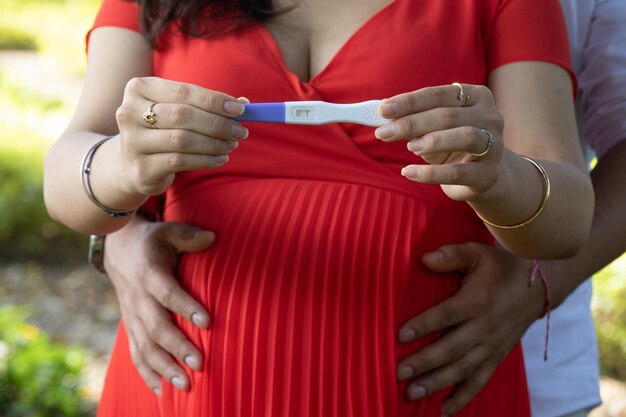How Much Support Can a Pregnant Woman Expect from WIC?
Finding the right support during pregnancy is crucial for the health of both the expectant mother and her future child. Among various programs available, the Women, Infants, and Children (WIC) program stands out as a cornerstone of support. But exactly how much does WIC offer to a pregnant woman? Let’s dive deep into understanding the contribution of WIC, addressing associated concerns, and exploring how eligible women can maximize their benefits.
🎯 Understanding WIC: A Quick Overview
The WIC program is a federally funded initiative aimed at providing nutritious foods, education, and support to low-income pregnant women, new mothers, infants, and children up to five years old. Its mission is to ensure the health of these groups through access to necessary resources. Since its inception, WIC has been celebrated for reducing the prevalence of low birth-weight babies and improving child development through the provision of vital nutrients and health education resources.
🤰 What Support Does WIC Provide for Pregnant Women?
Nutritional Assistance
One of the primary benefits of the WIC program is its focus on nutrition. Pregnant women enrolled in WIC receive food packages designed to supplement their diets with essential nutrients such as iron, protein, calcium, and vitamins A and C. Typically, these packages include:
- Milk
- Eggs
- Whole grain bread
- Iron-fortified cereals
- Fruits and vegetables
- Juice
- Legumes or peanut butter
WIC aims to offer foods that support the specific nutritional needs of pregnancy, helping to ensure healthier pregnancies and outcomes.
Health and Nutrition Education
Beyond food assistance, WIC provides education on healthy eating, breastfeeding support, and guidance aimed at improving lifestyle choices. Pregnant women have access to personalized consultations that address dietary concerns, promoting habits that can reduce risks during pregnancy and labor.
Access to Health Services
WIC also plays a role in facilitating access to healthcare services. By referring pregnant women to various healthcare providers, WIC acts as a gateway, ensuring they receive necessary prenatal care, immunizations, and screenings.
Economic Benefits
While WIC is primarily known for nutrition-related support, eligible women can indirectly benefit economically. By covering some of the food costs, women can allocate resources to other necessary expenses like healthcare visits, prenatal vitamins, or housing needs.
📜 Eligibility and Enrollment: Your First Steps
Understanding how to access WIC is essential for those considering enrollment. To qualify, women must meet the following conditions:
- Residency: Must reside in the state where they apply.
- Income: Meet specific income guidelines; typically, earn at or below 185% of the federal poverty level.
- Nutritional Risk: Determined by a healthcare professional, such as an inadequate diet or medical condition influenced by nutrition.
Eligible women can apply through local WIC agencies or community health departments. These agencies can assist with the application process and determine the specific benefits available based on individual health needs.
🍎 Maximizing WIC Benefits: Practical Tips
Navigating the WIC program efficiently can amplify the support an expectant mother receives. Here are some strategies to ensure you're making the most of WIC benefits:
- Attend Education Sessions: Take advantage of nutrition and health education sessions. These programs provide valuable knowledge on maintaining a healthy pregnancy.
- Use the WIC Food Card Judiciously: Understand the specific amounts and types of food you can purchase with your WIC food instruments. Planning meals around these items can help in efficiently managing your food budget.
- Stay Updated: Rules and offerings can change, so staying informed through regular contact with your WIC office can ensure you’re receiving appropriate benefits.
- Engage in Peer Support: Participate in WIC peer support groups or forums that can provide moral support and practical tips from others experiencing similar journeys.
💡 Frequently Asked Questions and Common Concerns
How Often Do Benefits Get Renewed?
WIC benefits need renewal periodically, often every six months. Renewals require reassessment of financial and nutritional status to continue receiving benefits and making necessary adjustments.
Does WIC Cover All Pregnancy Needs?
While WIC provides substantial nutritional support, it is designed as a supplement, not as the sole source of nutrition. Women should still seek other resources and support to cover all prenatal needs, including medical care and additional dietary supplements.
Can WIC Benefits Be Extended Post-Pregnancy?
Yes, WIC offers postnatal support for mothers and nutritional benefits for children up to the age of five. This continued support is especially beneficial in laying a nutritional foundation during a child’s formative years.
🎯 Summary of Key Takeaways
Understanding and benefiting from WIC requires some navigation. Here’s a concise look at what to remember:
- Nutritional Aid: WIC provides essential food items to support a pregnant woman's diet.
- Educational Resources: Take part in health education and breastfeeding support programs offered.
- Eligibility Essentials: Must fulfill income and residency requirements and be assessed for nutritional risk.
- Application: Begin at your local WIC agency or health department.
- Post-Pregnancy Support: Benefits can extend to children up to five years, providing long-term nutritional foundation.
By leveraging the comprehensive assistance from WIC, pregnant women can significantly enhance their prenatal journey, contributing to the well-being of both themselves and their children. Through a combination of food support, health education, and facilitated healthcare access, WIC bridges a crucial gap for many expectant mothers, fostering healthier communities across the nation.

